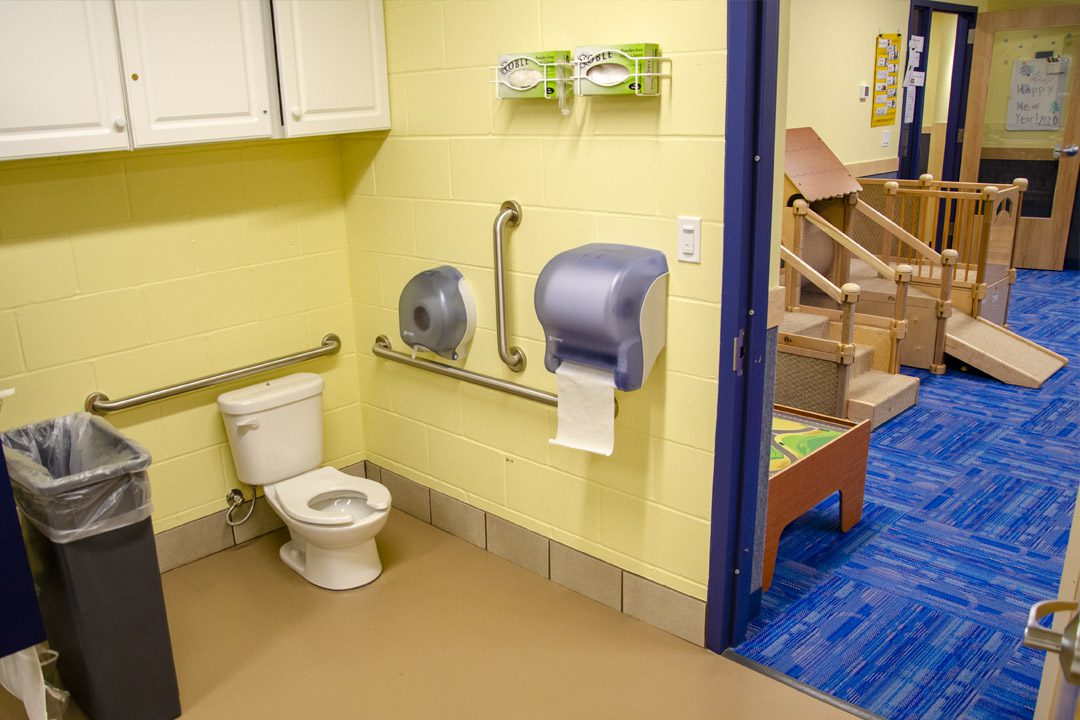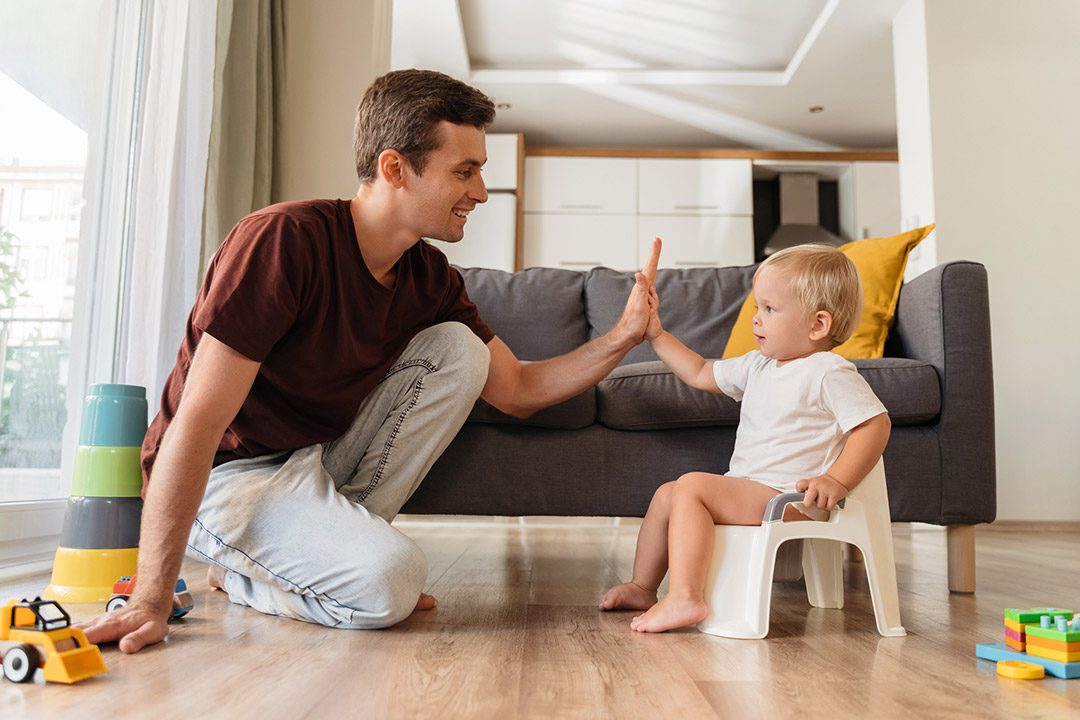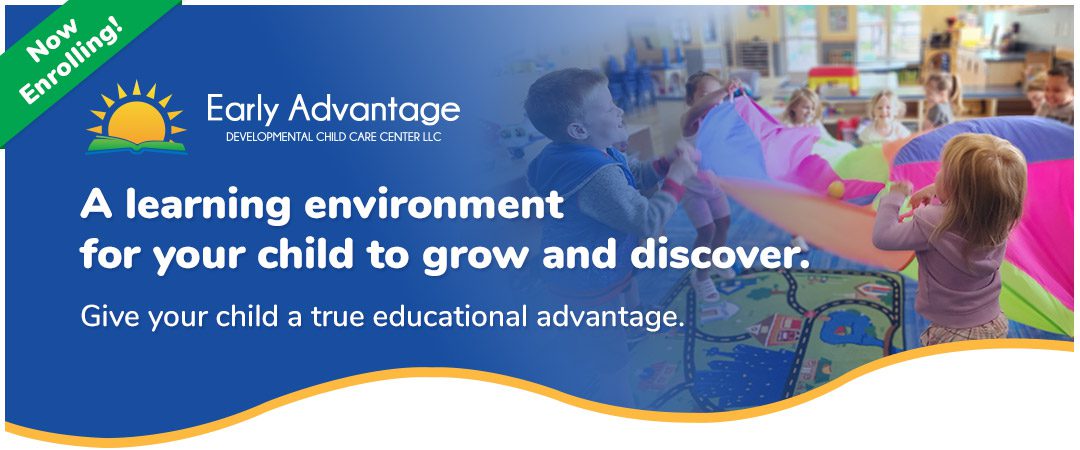When Should You Start Potty Training?
Most children will be ready to start potty training from somewhere between 18 months to 3 years of age. This may very well overlap with enrollment in infant to pre-K childcare.
One of the primary considerations for parents is determining the right time to start potty training. Every child is different, but starting the process when your child shows signs of readiness is crucial.
Consult with your child’s teacher or daycare center for their specific guidelines on potty training readiness. And if you have any questions for our staff at Early Advantage, feel free to ask them here.
Tips for Potty Training Your Child
The potty training process can be a unique experience for each child. Explore effective tips for potty training, from creating a consistent routine to using positive reinforcement.
Ensuring your child knows what to expect and is comfortable with the process is key to successful potty training at home.
- Look for Readiness Signs:
Ensure your child shows signs like staying dry, interest in the toilet, and communication about their needs. - Patience is Key:
Each child progresses at their own pace. Avoid comparisons and allow your child to reach this milestone in their time. - Consistency is Important:
Set regular toilet times, creating a routine that helps your child understand expectations. - Practice Elimination Communication:
Learn to recognize your child’s cues for elimination, fostering early communication about bodily functions. - Encourage and Reward:
Positive reinforcement is powerful. Celebrate successes with praise or small rewards to make the process enjoyable. - Equip with the Right Tools:
Child-friendly potties or toilet seat adapters, along with easy-to-pull-down pants, ease the transition to independent toilet use. - Prepare for Setbacks:
Accidents are part of the learning process. Reassure your child that it’s okay, maintaining a supportive and encouraging environment.

Potty Training at Early Advantage
- Consistent Routine:
Early Advantage establishes a consistent potty routine throughout the day, including regular bathroom breaks after meals, before and after naptime, and at specific transition times. - Modeling and Demonstration:
Caregivers at Early Advantage demonstrate proper potty techniques and hygiene practices using age-appropriate language and visuals, encouraging older children to serve as positive role models for younger peers. - Positive Reinforcement:
We use praise, encouragement, and positive reinforcement to acknowledge children’s efforts and successes with using the potty, celebrating milestones and dry days. - Comfort and Privacy:
Our childcare center ensures a comfortable and child-friendly bathroom environment with child-sized toilets and other necessary equipment, promoting privacy and independence. - Patience and Understanding:
We recognize that potty training is a developmental process, and we offer patience, understanding, and support for setbacks and accidents, fostering a positive atmosphere. - Promoting Independence:
We encourage children to take ownership of their potty training journey, allowing them to choose their underwear, use the toilet independently with supervision, and participate in handwashing and hygiene routines. - Visual Cues and Reminders:
We use visual cues such as picture schedules, bathroom signs, and reminders to help children remember to use the potty and follow proper hygiene practices. - Individualized Approach:
Our childcare center tailors potty training strategies to meet each child’s unique needs, preferences, and developmental stage, ensuring a supportive and personalized experience.

The Importance of Communication with Your Child’s Teacher
Talking to your child’s teacher about potty training is crucial for a collaborative effort. Share any concerns or specific aspects of your child’s potty training journey.
Establishing open communication ensures that both parents and teachers are on the same page, promoting consistency for the child.
Potty Training at Home vs. Preschool
While potty training at home lays the foundation, it’s essential to understand the differences when your child enters preschool or daycare.
Some children may need time to adjust to the new environment. Explore strategies to ease this transition and maintain the progress made during the potty training process.
- Extra Clothes:
Parents should provide their child with extra sets of underwear, pants, socks, and shirts to keep at our center. Accidents can happen during the potty training process, so having spare outfits on hand ensures that your child can quickly change if needed. - Diapers/Pull-Ups:
If your child is still in the process of potty training, communicate with your teacher about their current status. Your child may need to wear diapers or pull-ups during naptime or as needed, especially if they’re still working on bathroom skills but avoid sending them in diapers or pull-ups.
What if Your Child Isn’t Fully Potty Trained?
If your child hasn’t fully mastered potty training before starting preschool, don’t worry! At Early Advantage, we understand that every child learns at their own pace. We encourage open communication with our staff to discuss your child’s potty training progress and any concerns you may have.
Our approach is flexible, and we work with families to accommodate different scenarios. Some children may still wear pull-ups during the initial phase, and we collaborate with parents to ensure that their child’s individual needs are met during this transition period.
Preschool Potty Training: Preparing Your Child
As a full-service, infant through pre-K daycare center, we at Early Advantage understand your child’s journey and your involvement as a parent to reach this important milestone.
Potty training is an important achievement for your child and a big step in their overall confidence and development. Here’s to your successful journey and the growth of your little one. It is one of many important steps in their overall development and we know your child will make you proud!
As always, we would love to hear from you or you can schedule a tour to have your questions answered in person.


